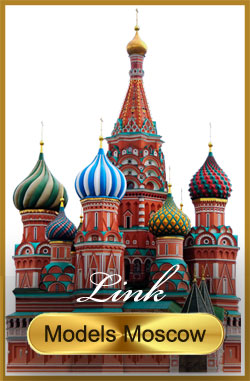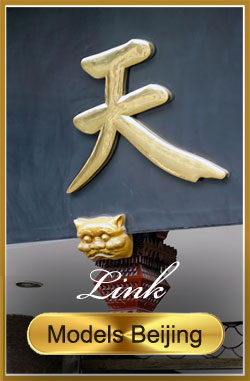You should travel to Prague when the days are long, so you will be rewarded by a very fair view as the train crosses the placid River Vltava. Out of a shadowy mass of grey houses with tiled roofs, divided by the glittering, winding river, rises the Castle of Prague, a massive building crowned by a church of which the soaring spires, pinnacles, and flying buttresses s’accusent against the western sky. The train then plunges you into a tunnel, a long tunnel taken slowly, where you may reflect on the vision you have seen, the vision of another city “that is at unity in itself.”
You have had your first glimpse of Prague, and it was beautiful, so you set about endeavouring to enter into the spirit of the place, to absorb its atmosphere and to study its character. For every ancient city that has stood up against adversity and overcome it has a very definite character of its own. And it is a mysterious, wonderful thing this character, this cachet of a great city; the charm of Paris or the grandeur of London, the glittering stillness of Venice or the insistent glory of eternal Rome.
The character of a city, as is that of man, is formed by experience, chiefly adverse, and is made evident by the work the city has done for humanity, its creator and its care. From the study of a city’s character may you look into its future and presage whether it be likely to achieve success or doomed to failure. For there have been failures among cities as among men, some pathetic owing to inherent weakness, others as a consequence of their own misdeeds.
Contrast Constantinople with Eternal Rome. Constantinople, with its pathetic remains of greatness, failed to remain “at unity in itself”; ancient Byzantium the “Guardian of the Gate” against the invading Oriental, lived to see its churches turned into mosques, below which lie, broken and untended, the porphyry monuments of Paleologue and Cantacuzene.
What of things beautiful was spared wandered to Rome, whence from the crumbling remnants of an old civilization came the light of the Renaissance that spread over Western Europe.
Most pathetic of all cities that have failed is Amarapura, not so long ago the capital of Burma, and a flourishing city on the banks of the Irrawaddy, placed indeed in the most appropriate position for its former purpose.
But a new King came who was not content with the capital of his fathers, so he ordered its removal. A sycophantic priesthood was loud in prophecies of the great future of the new capital to be built some few miles away, but Mandalay is this day the provincial centre of the government of a race alien to those who founded the city; the race of Kings, the last scion of which abandoned the city of his fathers, is all but extinct, and Amarapura has returned to the jungle from which it rose.
Now this, I admit, appears to have nothing to do with the city of Prague; it is indeed a far stretch of vision from “a Terrace in Prague” to the banks of the Irrawaddy.
Nevertheless, memories of far-off days in Burma came surging up one day as I sat on my terrace reading a newspaper printed and published in the city that lay shrouded in historic mist below. The paper brought news of an old acquaintance, not exactly a close, not even a bowing acquaintance, for we were generally kept apart by force of circumstances (which he might have controlled) at a distance of about a rifle-shot. This acquaintance was one Wun Thu, a son of Thebaw, last of the Burman Kings.
Wun Thu objected strongly to British rule, and emphasized his objection by making trouble with his bands of patriots, whom we called dacoits, robbers.
Even my peaceable occupation of surveying the land met with obstruction on the part of Wun Thu, and led to a frequent exchange of perfectly harmless rifle-shots. And here in Prague, looking down over my newspaper from the terrace of my choice, I seemed to see the spires of the city mass closer together and take on the form of giant jungle trees, the broad Vltava to shrink to the narrow silver thread of a mountain stream at the crossing of which Wun Thu’s sporting warriors had levelled their blunderbusses lashed to trees and warranted harmless to all but the men behind them; the paper told of another rising led by Wun Thu. Wun Thu had lain “doggo” for many years—at least he had done nothing to attract the attention of Central Europe—yet here he was, a man of my age and on the downward slope, following the post-war instinct of making trouble—for himself chiefly, as his attempt failed. I feel sorry for my old acquaintance; like so many of us of a former generation, he no longer fits into the picture; he is probably too honest to succeed under present-day conditions. However, Wun Thu has been banished to Ceylon, and I am still writing about Prague. Even in this I am last and, I willingly admit, least of a goodly company.
First in time of this goodly company is Cosmas of Prague, who wrote his chronicles early in the twelfth century. There are yet earlier German chronicles which make mention of the Bohemians, but the city of Prague was not in the days in which they were written. Those German chronicles suggest that the Bohemians who came into their land some time in the sixth century were at one time tributary to the Avari, an Asiatic tribe which had taken possession of the greater part of present-day Hungary, and were rather a nuisance to Western Europe.
It will be remembered that Charlemagne had forceful argument with these Avari; it had something to do with that worthy’s trip to visit the Empress of the East; there was a squabble about fares, river dues and such matters. However, this is vieux jeu, and has nothing to do with Prague. The Avari were devoted to the time-honoured practice of robbing and ravishing their neighbours, among them the Bohemians. These latter seem to have borrowed one Samo the Frank, a strong man, from one of the northern Slavonic tribes, and as he proved a success, invited him to be King over them.
Samo accepted the invitation, and is said to have founded the first great Slavonic State with Bohemia as nucleus and a strong castle at Vyšehrad, of which we shall have more to tell hereafter. The neighbouring Franks became uneasy at Samo’s increasing importance, and under Dagobert, their King, invaded Bohemia, to be badly beaten at Wogastisburg, which, according to Count Lützow, was near the present town of Cheb. Samo extended his territory after this victory, and appears to have lived till about the middle of the seventh century.
There ensues a complete lapse in the chronicling of the history of Bohemia until Cosmas took up the tale.
Having no historical records of events since the days of Samo, he drew upon a rich store of legend which, coloured by his lively imagination, forms a glowing and vivid background to the story of this interesting and attractive branch of the great Slavonic race, I am not competing with Cosmas. Bohemia has produced many chroniclers and historians since his day, men whose soul was filled with pride and love of race, whose mind was bent on giving to the world truthfully recorded history, men whose imagination nurtured on lovely legends, on great traditions amid the beauties of one of Europe’s fairest countries, found expression in works of lasting worth: I need only mention such names as Palacky, Tomek, and Lützow among many.
Of strangers who have been charmed to pertinent utterance by the glory and beauty of Prague there is an imposing array. In the fifteenth century Æneas Silvius, afterwards Pope Pius II, came this way, and described Prague as the “Queen of Towns.” Then Goethe, whose glowing pen could add colour to the vibrant beauty of Italian landscape, writes of Prague as “der Mauerkrone der Erde kostbarste Stein.” We will interpret this, as it is no longer the fashion to understand German, especially in Prague: “the most precious jewel in the mural crown of this earth.” Another German, Alexander von Humboldt, gives to Prague fourth place among the world’s “cities beautiful.”
Rodin considered Prague as the “Rome of the North,” a comparison that seems rather trite at first, but those who feel the meaning of this city will understand and appreciate the French sculptor’s judgment. Prague has, at least superficially, one quality in common with Rome; in your wanderings in either city you may come suddenly upon something of beauty so stupendous as to take your breath away.
Other French visitors of importance show a tendency to dwell upon the character of the Bohemians in general rather than on the beauty of their capital. With keen perception they draw the deeper meaning from out the stones of Prague; thus in the fifties of the last century writes Viollet-le-Duc, “Prague est une capitale dans laquelle on sent la puissance d’un grand peuple,” and Massieu de Clerval is yet more emphatic: “si un pays peut se vanter d’une nationalité indestructible c’est à coup sûr la Bohème.—Une nation qui a passé par de pareilles epreuves ne perira, elle a vaincu la mort.”
We must not overlook yet another visitor to Prague whose outlook was practical rather than romantic, Ibrahim Ibn Jacub. This Jewish trader from Arabia travelled in Bohemia some time in the tenth century, and was much struck with Prague, “a great commercial town of stone-built houses.”
So we who would add a belated word of tribute to the glory of Prague the Golden find ourselves indeed in goodly company. Moreover, we live in the present, and have, as far as this book is concerned, only just arrived in Prague.
The morning sun that tips the pinnacles of the Castle of Prague with gold, that dispels the purple shadows in which the city lies shrouded, and calls forth sparkling facets on the broad river, dissipates our dreams of cities that have failed and perished. It summons us to study this ancient city, old yet ever young. Beautiful, too, in all the varying glints of light upon the spires and turrets of its hundred towers, when the morning breeze comes down-stream and rustles in the trees that deck the islands, to the golden glory of the sunset behind the purple masses of the castle. Then a short star-lit night while Prague rests in dreams of former greatness to gain strength to face its high duties of the morrow.
Indeed, Prague is an ancient city, yet young and active and wonderfully beautiful in all its aspects.
It is not my intention to conduct you round Prague, to introduce to you one by one the many features of the city, and tell you all there is to know about them. This for two excellent reasons: one, that I am far from having got to the end of such knowledge myself, the other that you may be induced to come here and find out for yourself how much of interest and of beauty lies open before you.
As in introducing a friend, I mean to state only a few salient points, to give you a hint of the city’s story here and there as told by ancient buildings, as shown in public haunts or quiet nooks, hoping that in your turn you may make a friend of this venerable, this beautiful Prague. (From a Terrace in Prague/B. Granville)




